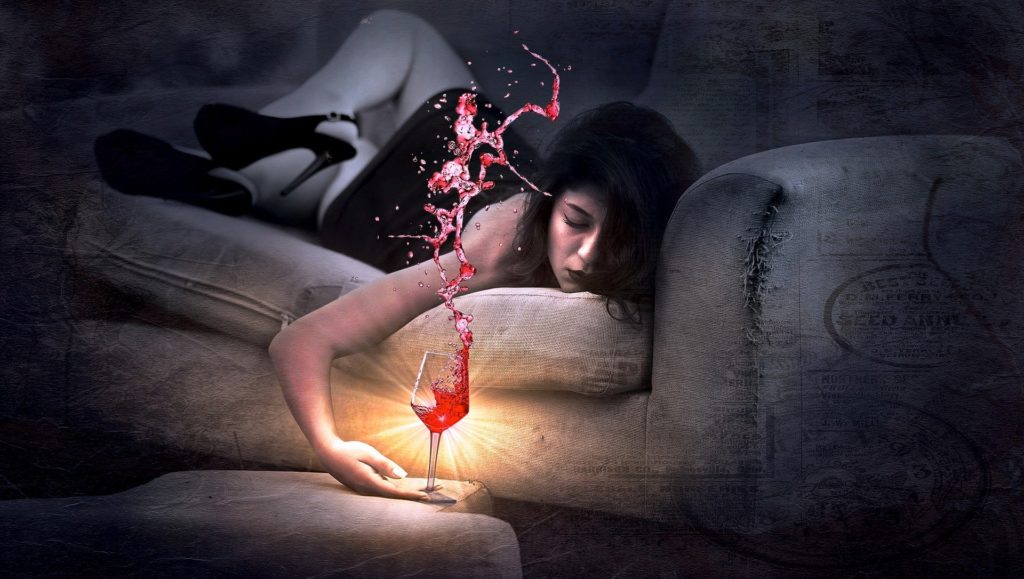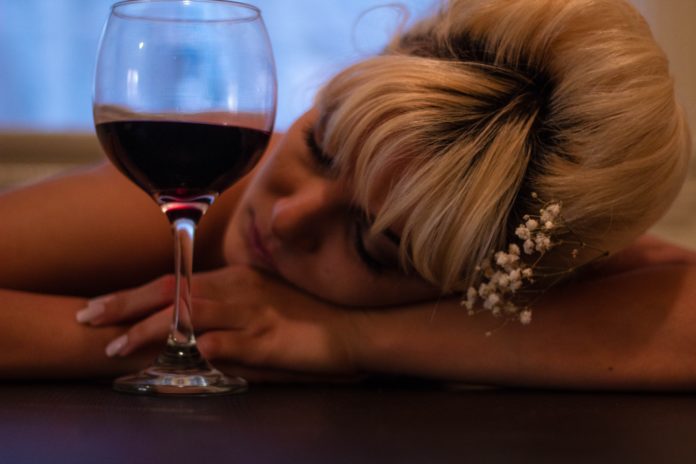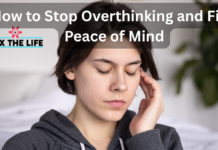Consumption of alcohol at any level can lead to disturbance in sleep patterns and can also induce sleep pattern disorders. Alcohol consumption impacts sleep patterns, sleep time, structure, duration of sleep, and can also affect the time needed to fall asleep. If alcohol impacts the sleep patterns negatively, then why does alcohol make you sleepy? There is a strong link between alcohol and sleep patterns.
Here is an article with all you need to know about alcohol and sleep.
What’s Our Normal Sleep Pattern
Out sleep comprises two states of sleep normally. These states occur alternatively, and in these states, waves of the brain reveal different activities. Below mentioned are two alternative sleep patterns.
- Slow-wave Sleep (SWS) – During this wave of your sleep, the brain waves slowly. You get deep and restful sleep. In addition to this, you make up around 75 percent of the sleep during night.
- Rapid Eye Movement Sleep (REM) – It takes around 25 percent of your night’s sleep time. During this time, the sleep occurs periodically. REM can occur around 90 minutes, and at a time, it can last from 5-30 minutes. During this time, the eye exhibits rapid movements while you are still sleeping. This period is less restful, and it is related to dreaming.
READ MORE: Stop Sleep Paralysis With These Simple Tricks.
Role of Brain in Controlling Sleep
Originally, it was considered that sleep was caused due to a reduction in activity in the systems of the brain, which leads to weakness.
However, researches have presented the evidence that sleep is the brain’s active procedure and is controlled by the nerve centers that are associated with lower brain stem.
In the brain, some of the nerve centers are responsible for producing serotonin, which is a chemical associated with the onset of sleep (Source).
In addition to this, the slow-wave sleep is also controlled by these nerves. Other nerve cells are accountable for the production of norepinephrine, which regulates REM sleep and helps in arousal.
Till now, it is not clear how these chemicals present in the brain communicate in order to control sleep; however, it is proven that alcohol consumption impacts the function of these chemicals, which in turn impacts the sleep patterns.
READ MORE: Prevent Sleep Paralysis Before it Starts to Disturb Your Life.
Alcohol and Sleep Pattern in People Without Alcoholism
Alcohol and insomnia are related to each other. Many people facing the issue of insomnia, consume alcohol before going to bed in order to fall asleep.
Initially, alcohol helps in falling asleep due to stimulating effects. These effects help in reducing the time that is needed to fall asleep.
However, the effects of alcohol are more than this. According to the researches, alcohol consumed before an hour of going to bed disrupts sleep quality in the second half period of sleep, which leads the person to sleep irregularly. It also leads the person to awaken from dreams again and again.
Over time, the effect of consumption of drink before bedtime reduces. With continuous consumption of alcohol, its sleep-inducing effect reduces, and the sleep disturbance effect increases.
This case is specifically true for elderly people as continuous drinking leads to the production of excessive levels of alcohol in their brain and blood as compared to the young drinkers.
In addition to this, for older adults, the risk for injuries and falls increases if they consume a drink before going to bed.
Varied studies also present the evidence that if you consume alcohol even before six hours of going to bed can lead to an increase in wakefulness. It impacts the sleep quality during the second half of sleep. Alcohol gets eliminated from your body till this time, but it still affects your sleep quality.
Alcohol, Sleep, and Breathing Issues
Consumption of alcohol frequently is supposed to be associated with increased risk of sleep apnea and specifically in people who snore.
In the issue of sleep apnea, the upper air passage closes or narrows, which leads to interrupted breathing.
During this situation, the person awakes, tries to continue breathing, and then gets back to sleep. These types of Incidents associated with awakening can occur multiple times while you are asleep during the night, which in turn reduces the sleep time.
Consumption of alcohol before sleep leads to narrowing the passage of air, which in turn leads to episodes of apnea in people who do not exhibit these symptoms usually.
Researchers have established a link between snoring, sleep apnea, and alcohol consumption and an increase in the risk of arrhythmia, heart attack, stroke, and sudden death.
Alcohol, Aging and Sleep Disturbance
With an increase in age, slow-wave sleep naturally decreases, and nighttime wakefulness increases.
According to varied studies. People above the age of 65 years awake around 20 times during the night. It causes sleep that is restorative and less restful. The behavior can increase the consumption of alcohol in people trying to increase sleep.
Alcohol Withdrawal Syndrome and Sleep
You might think that after quitting the habit of drinking, people can return to normal sleep patterns; however, the reality is that stopping the consumption of alcohol suddenly, can lead to alcohol withdrawal syndrome, which in turn can cause persistent sleep fragmentation and pronounced insomnia.
Below mentioned are some of the things that people going through withdrawal experience.
- Deduction in restful sleep
- Increase in REM sleep associated with withdrawal hallucinations
- Sleep including long periods of REM sleep
- Sleep that is interrupted by awakenings multiple times
How Does Alcohol Affect Sleep?

If you consume alcohol from time to time, then you must be aware of the fact that it leaves you drowsy sometimes. Many people use alcohol to fall asleep. However, while alcohol can fall you asleep faster, it also leads to poor quality sleep. Here is how alcohol affects sleep.
Alcohol Impacts Sleep Rhythm
Consuming alcohol before going to bed is associated with slow-wave sleep patterns known as delta activity. At the same time, alpha activity is also turned on. After drinking, together, alpha and delta activity in the brain inhibit restorative sleep.
It Interrupts Circadian Rhythm
You might fall asleep quickly after consumption of alcohol; however, you might wake up in the middle of the night.
One common reason for this is that consumption of alcohol impacts the production of chemicals in the brain that is responsible for triggering sleepiness when you are awake for a long period of time.
After drinking alcohol, there is an increase in the production of adenosine, which leads a person to fall asleep quickly. However, it becomes less intense as quickly as it occurs, which makes you wake up early before completing the rest.
Alcohol Blocks REM Sleep
Another reason that alcohol leads to lower-quality sleep due to consumption of alcohol is that it interrupts and blocks REM sleep, which is considered as the most restorative sleep. Due to less REM sleep, you are more likely to wake up unfocused and dazed.
It Increases Breathing Issues
Your whole body gets relaxed after consumption of alcohol, including your throat’s muscles. It leads your muscles to sleep apnea and snoring.
Increases the Need to go to Bathroom
We all know that nighttime is for sleeping, and our body learns that night is time for sleep and not for going to the bathroom. It means that our body has learned to put the bladder into hibernation during the night time.
However, alcohol is a diuretic, which makes you go to the bathroom again and again, which in turn impacts your sleep pattern.
Alcohol and Sleep
It is true that you might fall asleep quickly after having one or two drinks, but it also reduces your sleep quality.
Consumption of alcohol often reduces sleep onset latency, which means it reduces the time required to fall asleep. It leads people to quickly develop a tolerance for sedative effects of alcohol, which means you will have to drink more in order to have the initial sleep-inducing effects.
Many people might think that consuming alcohol moderately helps in falling asleep quickly, which seems like an advantage. It happens due to the fact that during this time, our body metabolizes alcohol, which helps in good sleep.
However, you need to understand that alcohol negatively affects your sleep for the entire night.
Studies present the evidence that, after consuming alcohol, in the first half of night, you might spend more time in a slow-wave and deep sleep.
However, during the second half of the night, sleep becomes actively disrupted as alcohol in your body is metabolized, and its sedative effects fade always, and your body undergoes rebound effects. This comprises a move from deep sleep to light sleep with too much disturbance in the second half part of the night.
Falling asleep quickly after consumption of alcohol might sound a good idea, but you need to understand that it does not provide you quality sleep. So the idea that consumption of alcohol enhances sleep is only a myth.




